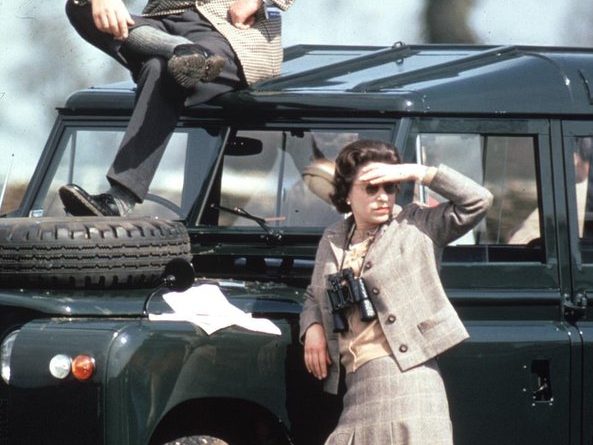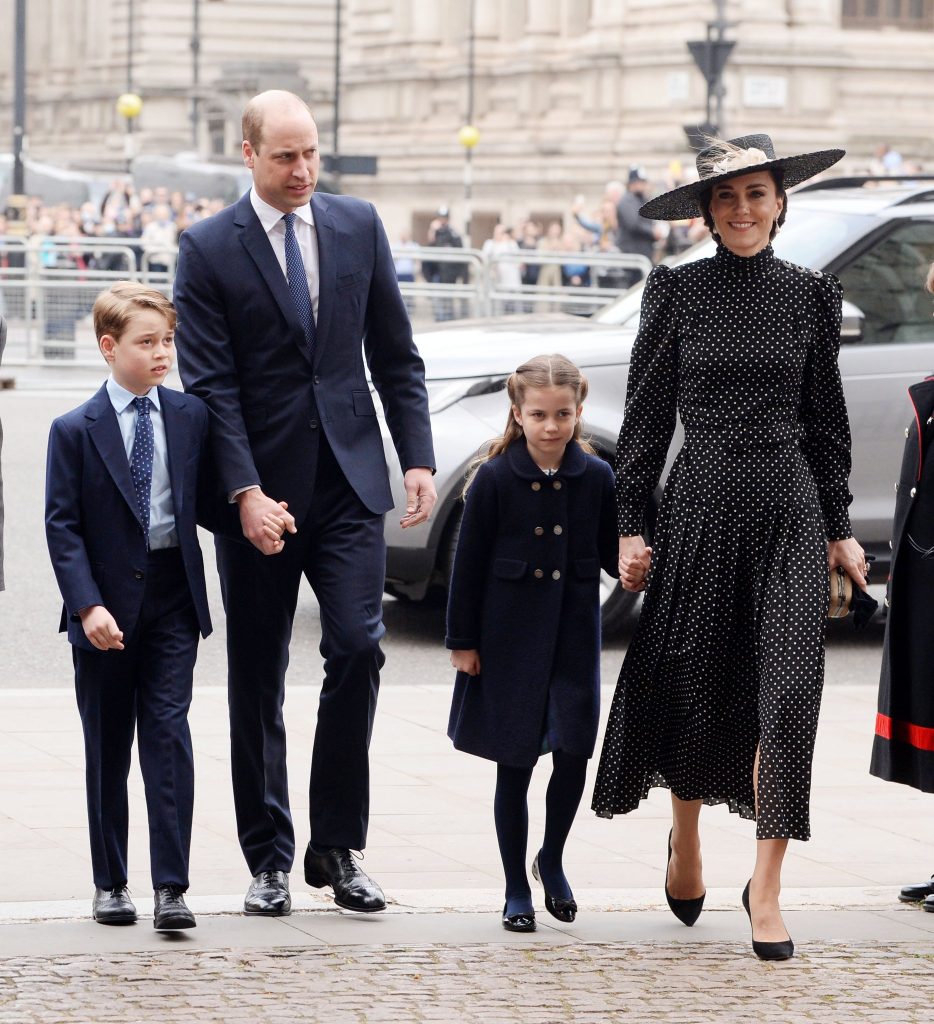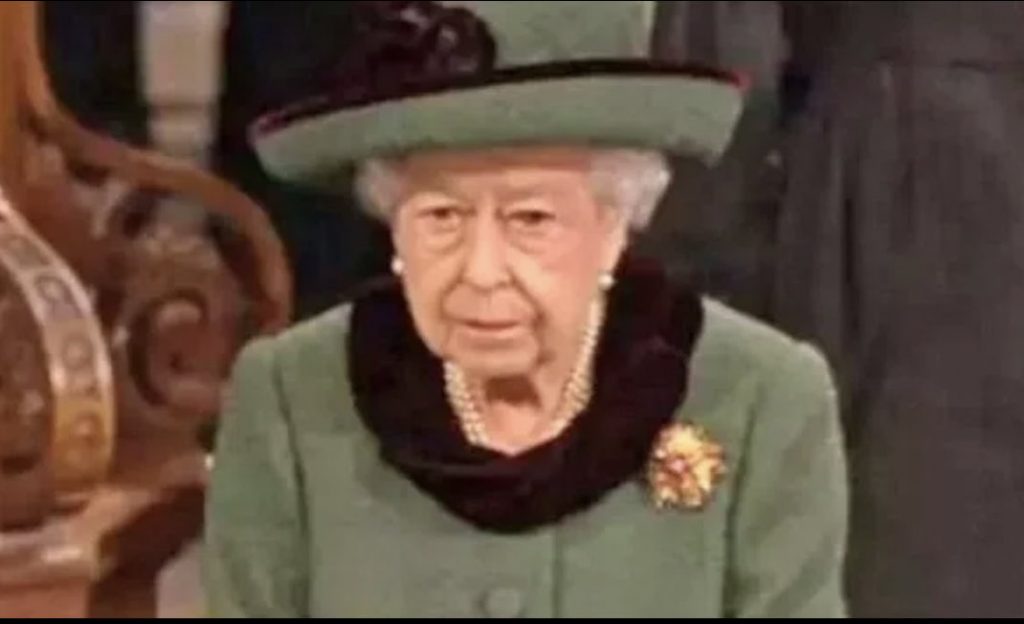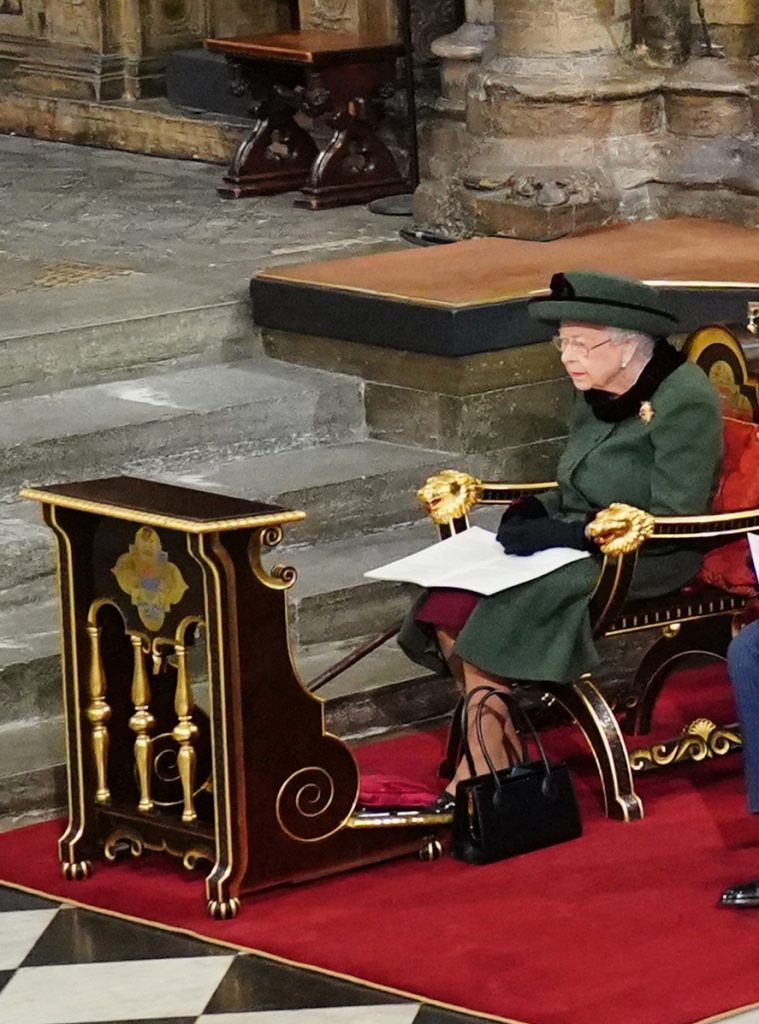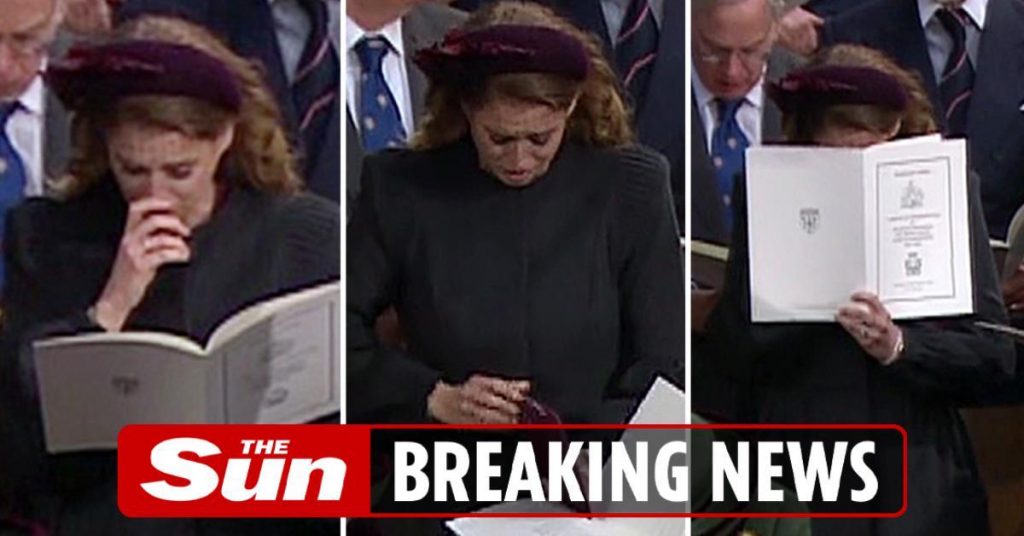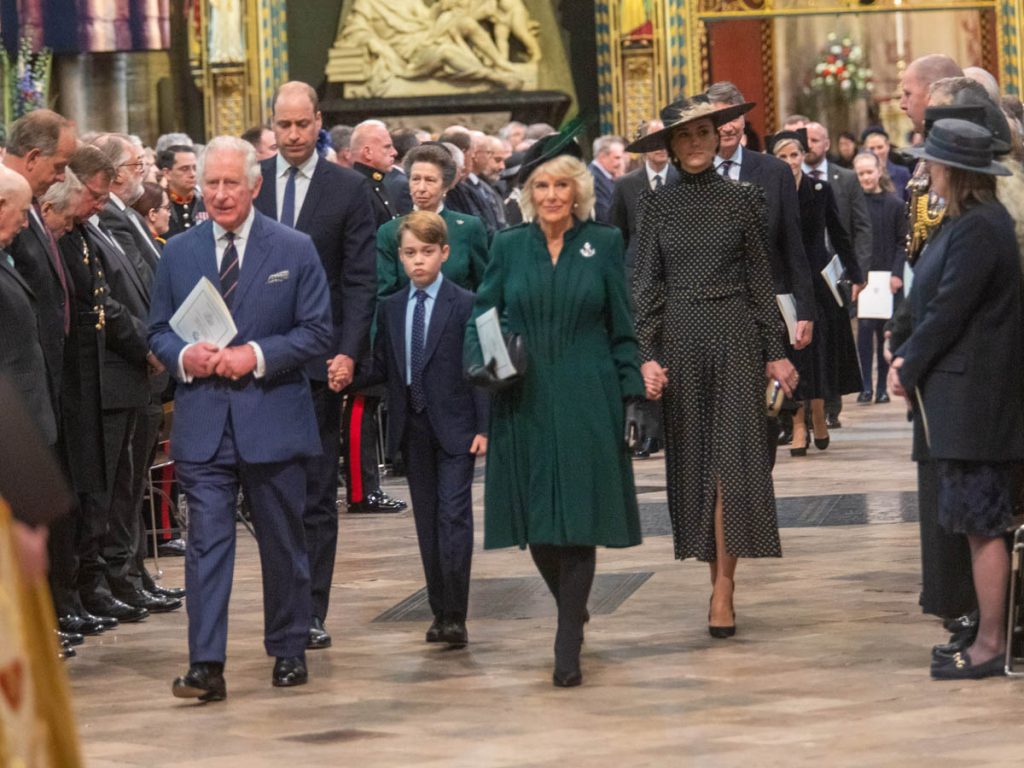Thursday Thoughts: Changing the royal report
On Tuesday, seven European monarchs, dozens of other European and Middle Eastern royals, the top brass of the British government, members of the armed forces, charity workers and pretty much the entire British royal family gathered in the beautiful surroundings of Westminster Abbey to celebrate the life of Prince Philp, the Duke of Edinburgh who died a year ago.
And what a life it has been. If you took a film script of it to a production company, they would ask you to tone it down, because, surely, no one could have had such an extraordinary existence . Prince Philip did.
Born royal but in impoverished circumstances in Greece, shipped off to a harsh regime at a public school in Britain as a boy, separated from his mother who had been put into a mental asylum, handsome, clever and dashing, as a teenager he caught the eye of a British princess barely in her teens. He joined the navy, became a decorated war hero but gave up his nationality, his title and for a time, his family, to marry the young princess, now an adult and on her way to becoming queen. From his honeymoon he wrote to his new mother-in-law, “Cherish Lilibet? I wonder if that word is enough to express what is in me? “
He told her that he had fallen in love with her daughter “completely and unreservedly.”
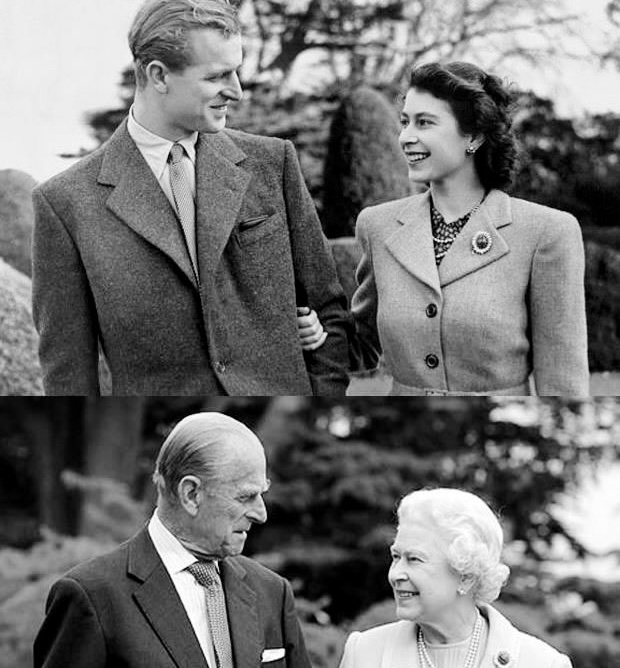
For the next 73 years he would remain by his wife, not quite by her side physically, because for 70 of those years he had to walk two steps behind but in every other sense, shoulder to shoulder with her. At his death, at the age of 99, he was the longest serving consort in British history.
On Tuesday his widow, now 96, stood, in the abbey where they had married and where she was crowned, a tiny, frail figure but somehow still a giant even in such illustrious company. The service was beautiful, the kind of thing that Britain does to perfection. The security detail for the event was meticulous. Outside the abbey the crowd was enormous.
It was a day to be proud of history, tradition, heritage and a dignified, courageous, courteous, glorious generation that will never exist again.
So what did the British press focus on in their coverage of the event?
Prince Andrew, of course.
“Why was ‘Andrew front and centre at the service? “They thundered on their front pages.
He wasn’t. He didn’t enter the abbey through the main entrance where all the cameras were. He didn’t deliver a reading or a eulogy about his father. He didn’t give any interviews before or after the service to the hordes of media waiting outside. He had a ‘blink and you’ll miss him’ part in the whole event. He didn’t hog the limelight.
What he did was to help his mother, who now has serious mobility issues, enter through a side door. He then held her arm part of the way to her seat and then quietly sat down on the other side of the aisle. Whatever his faults, he too lost his father. He had every right to attend the memorial. His mother, who has not put a foot wrong in the service of her country for 70 years, had every right to choose who helped her at, what ultimately, was not a state occasion but a family service.
So why the focus on him?
Because it was a way to taint the entire event?
Because the reporters thought it would be more divisive and therefore get more clicks for their sensationalised reports?
Because they’re suffering from haemorrhoids and had to take their anger out on somebody?
Who knows.
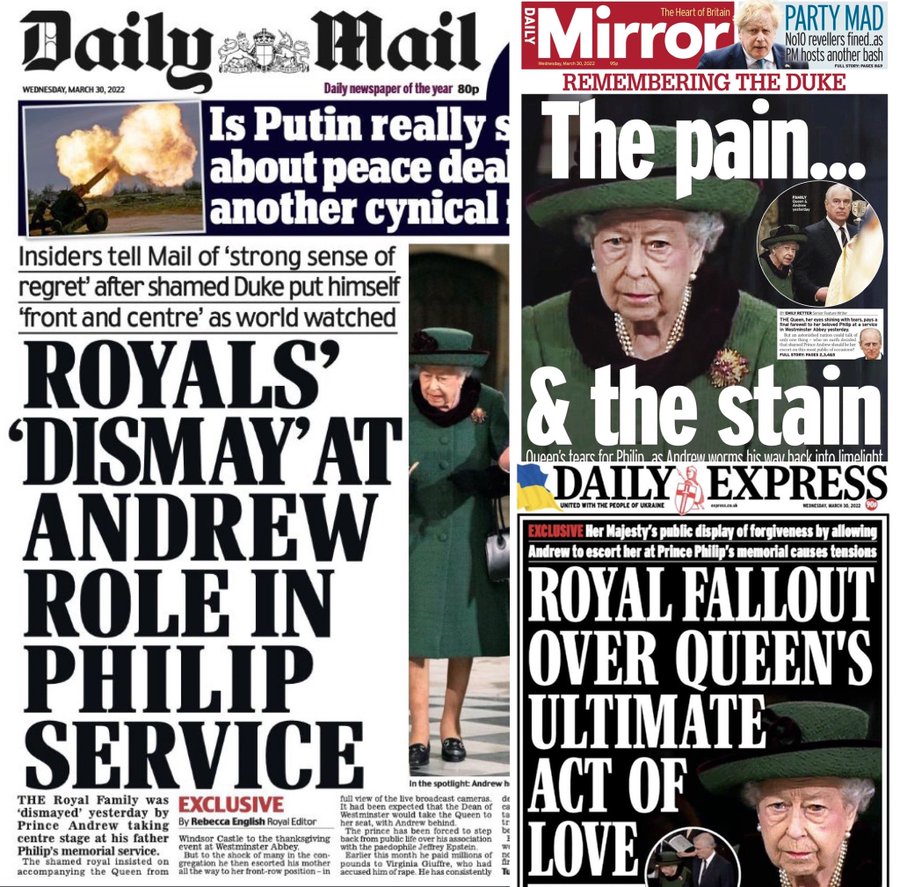
What is even less clear is the business model behind such reporting.
Let’s put aside the concept of fair and accurate reporting as something that has died along with dignity and respect in modern Britain.
Let’s accept that pride in your country and your history is an alien concept to most of the modern media.
Let’s assume that empathy for a grieving Queen and her family is unthinkable for these reporters.
What exactly is the endgame? For the monarchy to be abolished?
And then what?
No media outlet is going to make money from a 12 page colour pullout of a Keir Starmer tour. Hollywood celebrity is tarnished and tired. No one cares about the Beckham kids or the offspring of Will and Jada.
Royalty is leagues above mere celebrity. People emotionally invest in the Royals because often they see them from birth. Last week, in the Bahamas one woman could barely contain her excitement as she screamed at Prince WillIam, “I remember you when you were four!”
On Tuesday I spoke to some of the people in the enormous crowd gathered outside Westminster abbey. Many had been waiting for hours. Some had travelled from across the country and even from Europe. The younger ones were all there to see William and Kate but the older ones spoke quietly of wanting to catch a glimpse of the Queen because “ it might be the last time. “.
There was real sadness in their voices as they said that they had never known any other monarch, that she had been around all their lives and they couldn’t imagine Britain without her.
The British press/media does the British public a great disservice by ignoring them or trying to gaslight them with misleading coverage of royal stories. The people I spoke to were as sharp as a tack. They know what they saw on the Caribbean tour with their own eyes, and weren’t impressed at being told that actually they’d seen something different. The poor coverage of the memorial comes hot on the heels of the misleading coverage of the Royal tour of the Caribbean. More of this and the public will switch off, not click on, not buy and just move on from traditional media. If they’re not reaching the audiences, the advertisers will go too.
If the press wants President Johnson or Starmer then they should ditch the pretence. Get rid of the Royal reporters. Stop putting out the colour supplements of the Royal tour, a big birthday, the Jubilee, Royal wedding or a coronation. Focus on Katie Price, Stacey Solomons, the weather guy from the breakfast show on itv, stay in that level of celebrity.
As for the palace, perhaps the time has come to cast their net further afield. Look at foreign broadcasters and press who will not be unduly sycophantic or uncritical if criticism is merited but will report on what is actually on the ground.
The palace might also want to take a leaf out of the new marketing strategies being used by the film industry. Film companies are increasingly recognising that marketing a film via bloggers, YouTubers and other social media influencers can work as well, if not better, than through the old channels of newspapers and television shows.
Palace advisors can scour social media platforms, find sensible commentators, innovative video makers, contact them, ask if they want to cover a royal engagement. If it works well, use them more often, even on a tour in due course. Another option is to put out a call for for writers, filmmakers, aspiring reporters. Provide some training for them and give them a chance. The principality of Monaco used influencers recently to cover the publicity for a programme they wanted to reach a younger audience. Popstars arrange listening parties for select fans they know will spread the word for their new album.
The royals can start testing the waters too. It can’t be any less dignified than what they’re enduring from the current crop of reporters.

